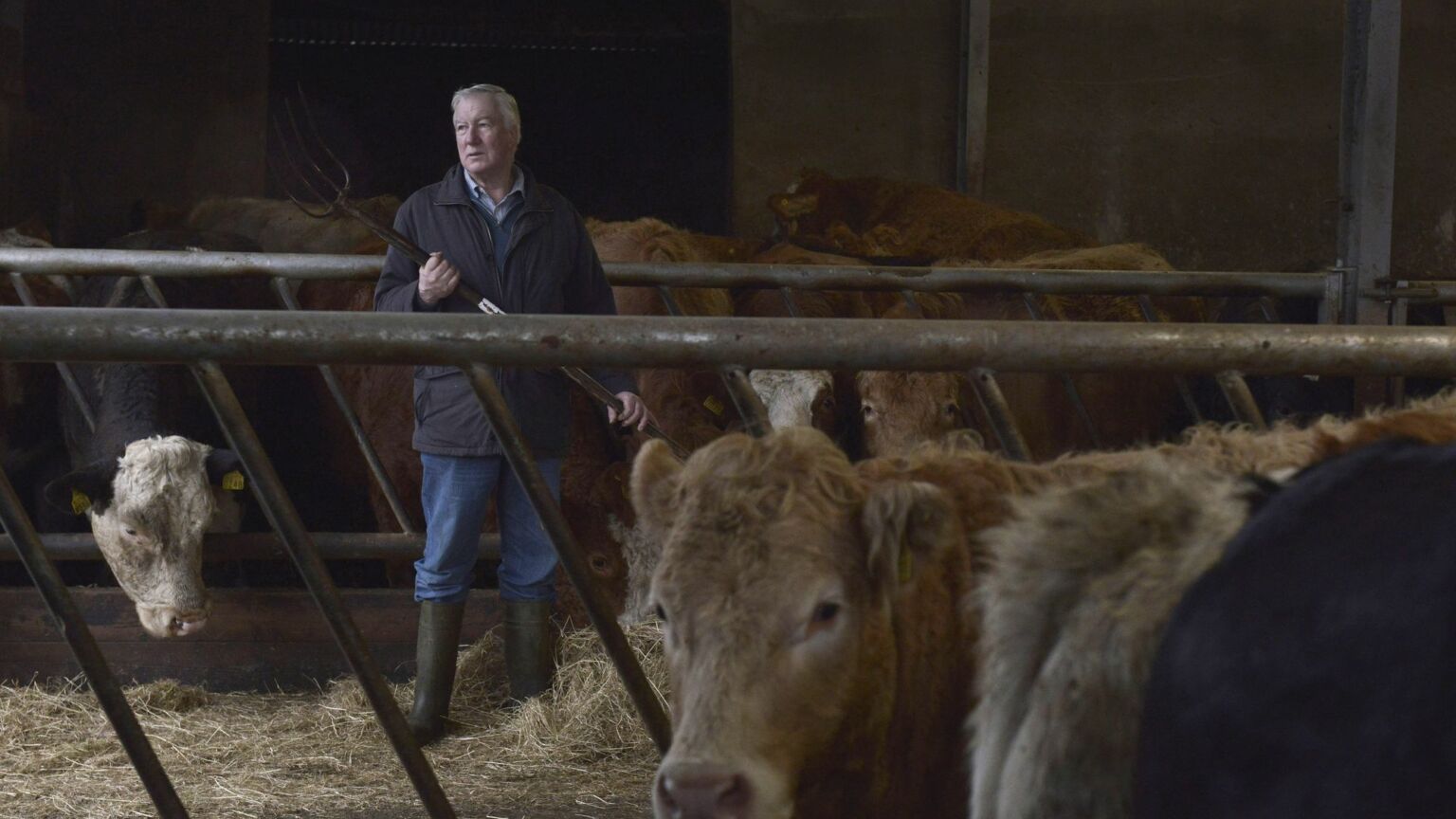The fury of Ireland’s farmers
All across Europe, put-upon farmers are rising up against green dogma.

Want to read spiked ad-free? Become a spiked supporter.
Ireland’s newest political party, the Farmers Alliance, is now a fully registered contender in Irish politics. Following approval from the Registrar of Political Parties last week, it will now have the opportunity to field candidates in local, national and European elections. Party leader Liam McLaughlin says the alliance already has 40 potential election candidates lined up, with plans to run more than 100 by the time polling stations open in the summer.
Although this is undoubtedly big news, the creation of a farmer-led party probably won’t come as a shock to anyone familiar with the plight of Ireland’s farmers, who have been under relentless attack from the government for quite some time. Many farmers feel they are being made to pay the price for their government’s delusional climate policies.
Last year, the Irish government announced its plan to slash agricultural emissions by 25 per cent. To achieve this, it proposed reducing Ireland’s national dairy herd by 10 per cent over three years, which would mean culling 200,000 cows.
Naturally, farmers were furious. Thousands turned up to protests across the country – on foot, in tractors and in trucks. Michael Healy-Rae, an Independent TD from County Kerry, called the plan ‘absolute madness’. He is right. Not least as culling Irish cows would simply shift beef and dairy production to other countries, rendering any emissions savings completely redundant.
The Irish government insists that the cull would be an entirely voluntary option, as part of a much broader ‘retirement exit scheme’ for farmers. But these assurances have done little to ease farmers’ suspicions. After all, this is a government that is fanatically committed to its Net Zero targets. As Pat McCormack, president of the Irish Creamery Milk Suppliers Association, points out, the agricultural industry has already made significant progress in reducing emissions in recent years. And yet still the government keeps adding burdensome new targets. He argues that there is an ‘anti-rural agenda’ at play here.
Although it was set up as a party of farmers, by farmers and for farmers, the Farmers Alliance is hoping to appeal to Irish citizens more broadly. For instance, by taking a sceptical stance towards mass migration, it hopes to differentiate itself from mainstream parties like Fianna Fáil, Fine Gael, the Green Party and Sinn Féin. At a time when vast swathes of Irish voters are disillusioned with liberal-elite rule, the Farmers Alliance is presenting itself as a populist alternative.
The emergence of the Farmers Alliance in Ireland reflects a much broader European struggle. Farmers have been besieged by green diktats from both their own national governments and from the EU.
In the Netherlands, the government’s restrictions on nitrogen emissions could lead to the closure of some 3,000 farms. Farmers have been fighting back on the streets and at the ballot box. Last year, the Farmer-Citizen Movement, a pro-farmer populist party, swept the board in the Dutch provincial elections.
Meanwhile, in Germany, 30,000 farmers and 5,000 tractors descended on Berlin earlier this month to protest against planned cuts to vital fuel subsidies. As well as the protests in Berlin, farmers blocked roads all over the country to try to force Olaf Scholz’s government to reverse its tax grab and to soften its brutal emission-reduction measures.
For the past week or so, tens of thousands of farmers have also been out blocking roads across France, demanding that their government scrap punitive taxes and excessive green regulations. As in Ireland, Germany and the Netherlands, these protests in France have also struck a chord with the public more broadly. As is clear to see, from Ballinrobe to Bonn, Beauvais to Breda, farmers are speaking up – and the people are listening.
After all, farmers undertake what is perhaps the most important job out there: producing the world’s food supply. Today, a single farmer feeds 154 people. Remove them from the equation and the world as we know it collapses. Ordinary people recognise this, even if our elites do not.
Farmers have been taken for granted for far too long, but now that is changing. They are rising up and fighting for their futures. An agricultural revolution is upon us.
John Mac Ghlionn is a researcher and essayist. Follow him on Twitter: @ghlionn
Picture by: Getty.
Who funds spiked? You do
We are funded by you. And in this era of cancel culture and advertiser boycotts, we rely on your donations more than ever. Seventy per cent of our revenue comes from our readers’ donations – the vast majority giving just £5 per month. If you make a regular donation – of £5 a month or £50 a year – you can become a and enjoy:
–Ad-free reading
–Exclusive events
–Access to our comments section
It’s the best way to keep spiked going – and growing. Thank you!








Comments
Want to join the conversation?
Only spiked supporters and patrons, who donate regularly to us, can comment on our articles.